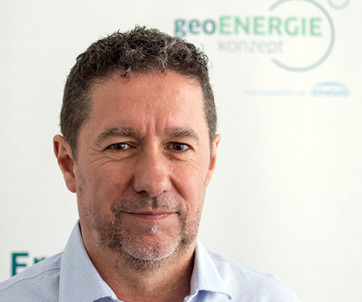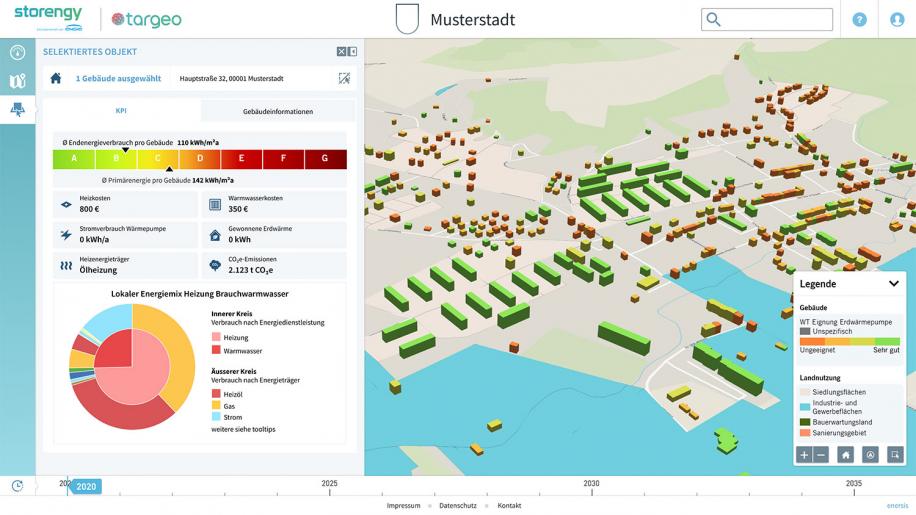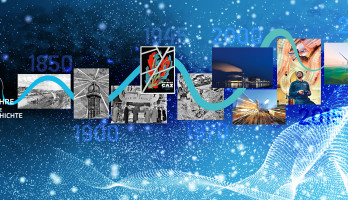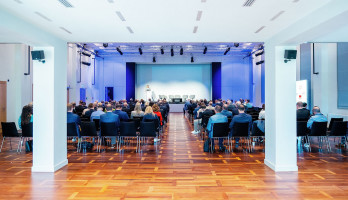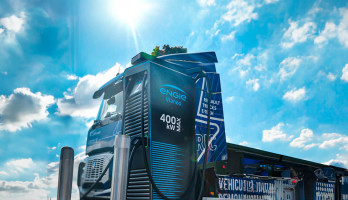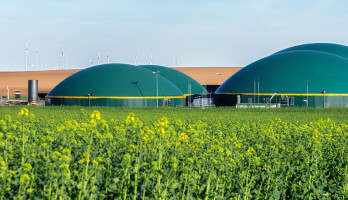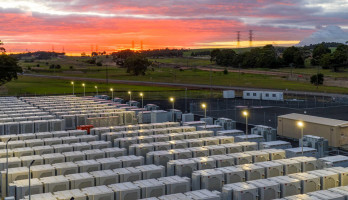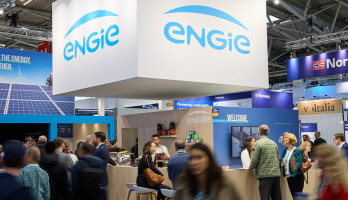
Geothermal energy - key technology for the heating transition
Climate neutrality by 2045 - the energy transition in Germany towards a CO2-neutral future requires a consistent rethinking in many areas. Today, the heating and cooling market accounts for about half of national energy consumption. A successful heating transition is therefore decisive for achieving the emission targets. Geothermal energy plays a central role as a proven key technology with high growth potential. In order to exploit the potential on a much larger scale than before, significantly more large-scale heat infrastructure must be established in the future and holistic heat concepts implemented.
Near surface geothermal and deep geothermal energy – sustainable technologies for the future
In the production of geothermal energy, two geothermal technologies can be distinguished:
- The near-surface geothermal energy is used to extract geothermal energy from groundwater, soil and rock layers up to a drilling depth of 400 meters. When connected to heat pumps to regulate the useful temperature level, it can supply residential buildings, commercial buildings, infrastructure facilities and neighborhoods. Heating and cooling with geothermal energy is possible almost without restrictions. Except for a few site-related exceptions, geothermal projects close to the surface can be realized throughout Germany.
- In contrast to near-surface geothermal energy, taps deposits from 400 meters to several kilometers below the earth's surface. Geothermal energy from the deeper layers of the earth can be used to operate more powerful plants that can supply local and district heating networks for entire neighborhoods and medium-sized cities. However, only certain regions are suitable for the direct use of deep geothermal energy in Germany, such as the Upper Rhine Rift, the Molasse Basin or the North German Basin.
Heating and cooling with geothermal energy: Benefits of using the versatile geothermal energy
As an inexhaustible and weather-independent energy source on site, geothermal energy offers numerous practical advantages over other energy sources:
- Available always and almost everywhere: Technologies proven in practice enable the use of geothermal energy at almost any location.
- Safe and ecological: The energy is produced without a combustion process, so that no CO2 is emitted during its production.
- Long-term planning of energy costs: Geothermal energy supplies reliable energy at stable prices. Price fluctuations, as with other energy sources, are a thing of the past.
- Highly efficient heating and cooling: With every kilowatt hour of renewable electricity for the operation of heat pumps, up to 5 kilowatt hours of heat can be generated. In addition, passive cooling without the energy-intensive use of compressors.
Market potential of geothermal energy not yet exhausted
As a look at the heat output generated in Germany shows, deep geothermal energy in particular is still in its infancy. According to the Federal Association of Geothermal Energy (BVEG), a total of 37 plants provided around 350 megawatts of installed heat and 50 megawatts of electrical power in 2020. In contrast, there are around 440,000 near-surface geothermal systems (mostly geothermal probes or collectors in conjunction with heat pumps) with an installed capacity of around 4,400 megawatts.
In perspective, various studies anticipate further growth, but at the same time call for accelerated expansion paths. For example, according to Agora Energiewende, the number of heat pumps for near-surface geothermal energy would have to increase more than tenfold by 2030 compared to today in order to achieve a greenhouse gas reduction of 55 percent compared to 1990.
Implementation of geothermal projects: Current market structures slow down faster expansion paths
In order to make a significant contribution to the achievement of the climate objectives, the geothermal market in particular has to be reorganized structurally and commercially. Whether expensive one-off installations, a multitude of suppliers or locally limited market approaches: Small, poorly integrated players and fragmented value chains often shape what happens. In addition, many potential customers – be they energy suppliers, the housing industry or companies – lack knowledge about the opportunities offered by geothermal energy. Innovative approaches are therefore required that open up new market access and create space for holistic geothermal projects on a larger scale.
Unlocking market potential - ENGIE Group develops suitable geothermal solutions
As the world market leader in the planning, implementation and operation of geothermal projects, ENGIE develops targeted market potential for the creation of new, green infrastructure. Together with municipal utilities, municipalities, the private building industry and commercial and industrial customers, the ENGIE Group in Germany develops powerful and tailored geothermal solutions for buildings, neighborhoods, green local and district heating networks as well as for large industrial and commercial building complexes.
From basic evaluation and preliminary planning to drilling and installation of the heating and cooling technology as well as ensuring smooth operation, the ENGIE Group in Germany offers all services from a single source in order to implement the highest possible standards in every performance phase.
Storengy: Geothermal pioneer bundles ENGIE geothermal activities in Germany
Whether turnkey geothermal solutions for residential and office projects as well as neighborhoods or sustainable infrastructure and network solutions – ENGIE's geothermal activities in Germany are being bundled and structured by Storengy, a subsidiary of the ENGIE Group. With its many years of expertise and its worldwide activities, Storengy is regarded as a pioneer in the development of geothermal solutions for heating, cooling and power production and cooperates with other subsidiaries of the ENGIE Group and its partners to ensure the project success.
Building focus: targeo shows municipal utilities concrete action options for green heat
targeo is a digital expert office and software solution provider that supports energy suppliers and municipal utilities in tapping economically suitable potential for geothermal heat pumps in their region. It is based on a 3D mapping of the status quo of the local heat supply in terms of energy consumption and greenhouse gas emissions.ons.
Using this as a basis, targeo shows possible courses of action for a future heat supply based on geothermal heat pumps. This type of building-specific determination of geothermal potential allows municipal utilities, for example, to target and aggregate customers in neighborhoods and new development areas. Instead of expensive individual solutions, larger and more cost-efficient geothermal projects can be planned and implemented on this basis and customers can be retained for the long term.
Our Expert
